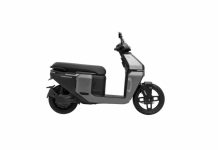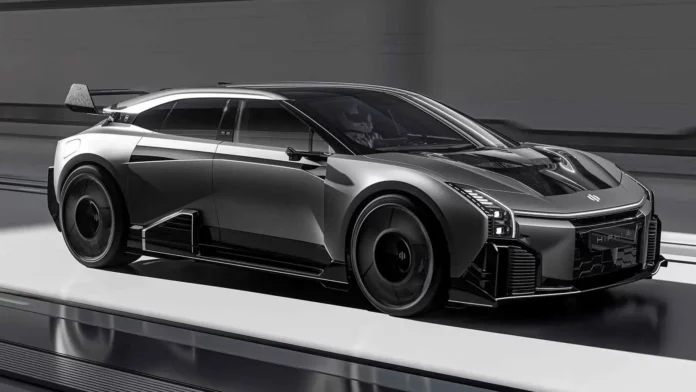Electric vehicles (EVs) are transforming the automotive industry, offering a sustainable alternative to traditional internal combustion engine vehicles. In India, the Bureau of Indian Standards (BIS) has taken significant steps to ensure the safety and performance of EVs with the introduction of new standards. This article delves into the details of these new standards, their implications for the industry, and the broader context of EV safety in India.
New BIS Standards for Electric Vehicles
IS 18590: 2024 – Powertrain Safety
The BIS standard ‘IS 18590: 2024’ focuses on the safety of the powertrain in electric vehicles. The powertrain, comprising components like the motor, inverter, and drivetrain, is crucial for the vehicle’s performance and safety. This standard sets guidelines for the design, manufacturing, and testing of powertrain components to ensure they meet safety and performance benchmarks.

Key Aspects of IS 18590: 2024
- Design Specifications: Detailed requirements for the design of powertrain components to ensure durability and safety.
- Manufacturing Guidelines: Standards for the manufacturing processes to maintain high-quality production.
- Testing Protocols: Comprehensive testing methods to evaluate the performance and safety of the powertrain under various conditions.
IS 18606: 2024 – Battery Safety and Performance
Another critical aspect of EV safety is the battery, which is addressed by the ‘IS 18606: 2024’ standard. This standard aims to ensure the safety and performance of batteries used in electric vehicles in the L, M, and N categories, which include motorcycles, cars, and heavy vehicles respectively.
Key Aspects of IS 18606: 2024
- Safety Requirements: Criteria for battery design and construction to prevent failures and hazards.
- Performance Metrics: Standards to measure battery efficiency, longevity, and performance under different operating conditions.
- Testing Procedures: Protocols for rigorous testing of batteries to ensure they can withstand various stress factors and maintain safety.
Standards for E-Rickshaws and E-Karts
IS 18294: 2023 – Construction and Functionality
In addition to the new standards for electric vehicles, BIS has introduced ‘IS 18294: 2023’ specifically for e-rickshaws and e-karts. These vehicles are essential for last-mile connectivity and urban transportation. The standard focuses on the construction and functionality of these vehicles to ensure occupant safety.
Key Aspects of IS 18294: 2023
- Construction Guidelines: Standards for the structural integrity of e-rickshaws and e-karts.
- Functional Safety: Requirements for the functionality of various components to ensure safe operation.
- Occupant Safety: Measures to protect the safety of passengers in different scenarios.
Current Landscape of EV Standards in India
Comprehensive Framework of 30 Standards
As of now, there are 30 Indian standards for electric vehicles covering various aspects such as accessories, EV charging systems, and more. These standards create a comprehensive framework that addresses the diverse requirements of electric vehicles, ensuring they are safe, reliable, and efficient.
Focus on Continuous Improvement
Improving the safety of electric vehicles is an ongoing process. With advancements in technology and increasing adoption of EVs, it is crucial to continuously update and refine standards to keep pace with industry developments.
ARAI’s Electric 2-Wheeler Crash Test
In a significant move towards enhancing EV safety, the Automotive Research Association of India (ARAI) conducted the first-ever electric 2-wheeler crash test. This initiative aims to evaluate the crashworthiness of electric two-wheelers and identify areas for improvement.
Implications for the Industry
Enhanced Safety and Reliability
The introduction of new standards by BIS is a positive step towards enhancing the safety and reliability of electric vehicles in India. Manufacturers will need to adhere to these standards, ensuring that their products meet stringent safety and performance criteria.
Boost to Consumer Confidence
With robust standards in place, consumer confidence in electric vehicles is likely to increase. Buyers can be assured that the EVs they purchase are designed and tested to meet high safety standards, making them a viable and safe alternative to traditional vehicles.
Encouraging Innovation
The new standards also encourage innovation in the EV industry. Manufacturers will be motivated to develop new technologies and solutions that comply with the latest safety and performance requirements, driving the industry forward.
Challenges and Opportunities
Implementation Challenges
While the new standards are a welcome development, their implementation may pose challenges. Manufacturers will need to invest in upgrading their processes and technologies to comply with the standards. There may also be a need for training and capacity-building initiatives to ensure that industry stakeholders are well-equipped to meet the new requirements.
Opportunities for Growth
Despite the challenges, the new standards present significant opportunities for growth. By adhering to high safety and performance standards, Indian EV manufacturers can enhance their competitiveness in the global market. Additionally, the focus on safety and reliability can drive increased adoption of electric vehicles, contributing to the country’s sustainability goals.
The Future of EV Safety in India
Ongoing Standardization Efforts
The BIS’s efforts to introduce new standards are part of a broader movement towards standardization in the EV industry. Ongoing efforts to update and refine standards will ensure that they remain relevant and effective in addressing emerging challenges and technologies.
Role of Regulatory Bodies
Regulatory bodies like BIS and ARAI play a crucial role in shaping the future of EV safety in India. Their initiatives in developing and enforcing standards are vital for ensuring that electric vehicles are safe, reliable, and efficient.
Collaboration with Industry Stakeholders
Collaboration between regulatory bodies, manufacturers, and other industry stakeholders is essential for the successful implementation of new standards. By working together, these entities can ensure that the standards are practical, achievable, and effective in enhancing EV safety.
Conclusion
The introduction of new standards by the Bureau of Indian Standards marks a significant step forward in ensuring the safety and performance of electric vehicles in India. The standards for powertrain safety, battery safety, and the construction of e-rickshaws and e-karts are crucial for addressing the unique challenges posed by electric vehicles. While there are challenges in implementation, the opportunities for growth and innovation are substantial. With ongoing efforts to improve and refine standards, the future of electric vehicle safety in India looks promising.
































